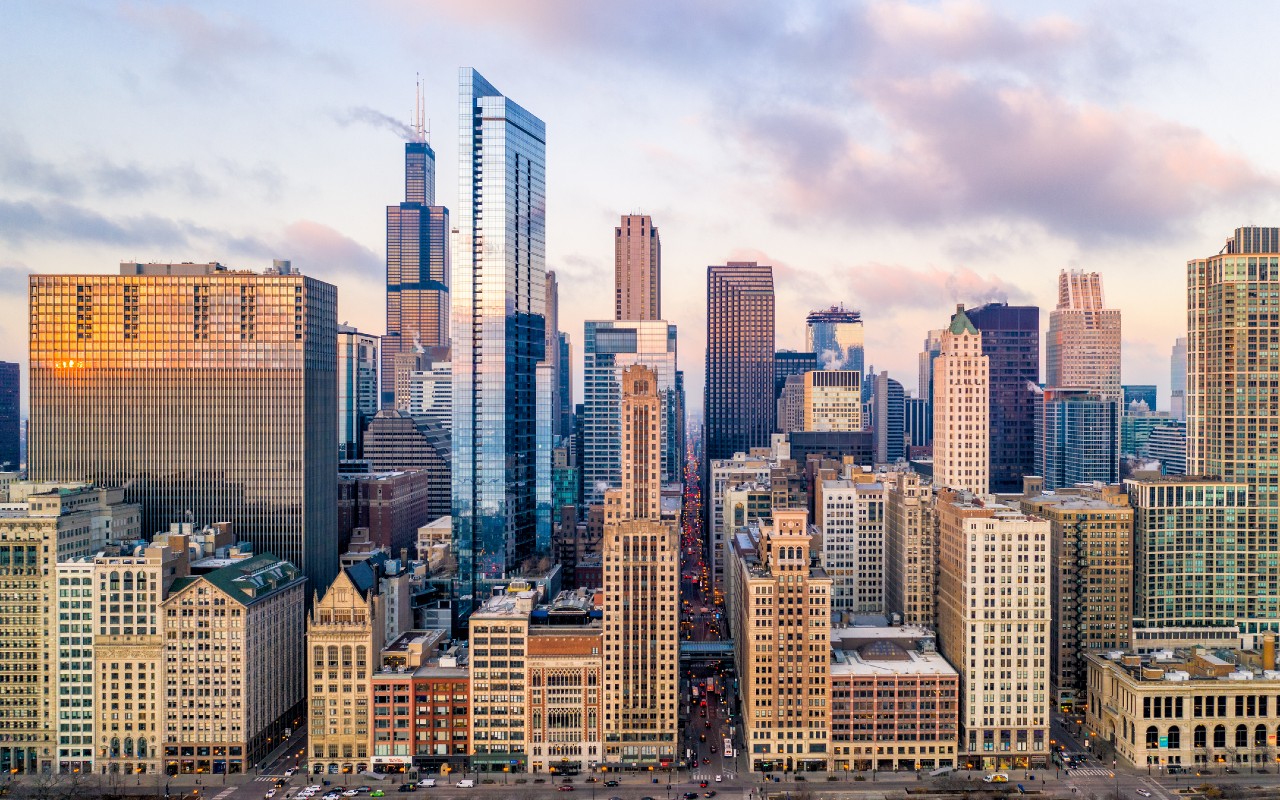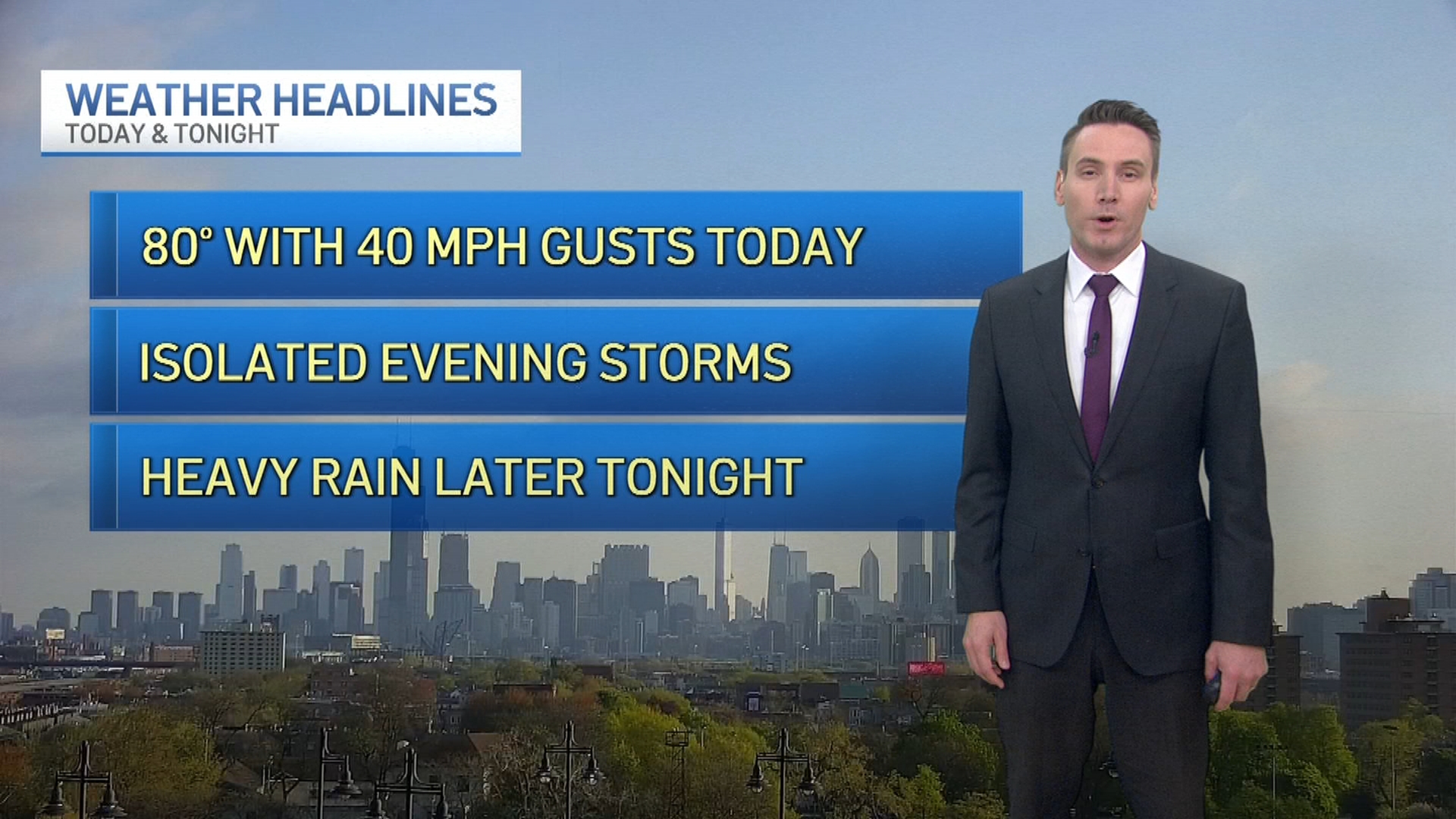Cooling temperatures and changing colors aren't the only signs of the official end of summer, which is now just 10 days away.
While the meteorological start of fall coincides with the start of September, the astronomical start of fall isn't until Sept. 22, when the autumnal equinox occurs.
In the days leading up the equinox, a local phenomenon known as Chicagohenge occurs, where sunsets and sunrises align perfectly with east-to-west streets in Chicago's symmetrical street grid.
But when does it all change exactly, and what else is on the horizon this autumn?
Feeling out of the loop? We'll catch you up on the Chicago news you need to know. Sign up for the weekly Chicago Catch-Up newsletter here.
Here's a look at some of the fall dates to know about.
When is the start of fall?
The autumnal equinox occurs on Sept. 22.
Local
Fall doesn’t technically begin until 8:04 p.m. on Sept. 22 in the Northern Hemisphere, but meteorological fall, observed by weather experts and forecasters, officially began on Sept. 1 and runs through Dec. 1.
Astronomical fall continues through 3:48 p.m. CT on Dec. 21, when winter officially begins.
When do our clocks 'fall back'?
Daylight saving time will soon come to an end, which means Illinoisans will soon turn their clocks back a full hour.
In the United States, daylight saving time lasts for a total of 34 weeks, running from early-to-mid March to the beginning of November in those states that observe it.
In 2022, Daylight Saving Time began on March 13, more than a full week before the official start of spring. On that date, Illinoisans set their clocks one hour ahead.
Daylight Saving Time will end on Nov. 6 -- that's the date that Illinoisans will set their clocks back an hour.
When will the sun start setting before 7 p.m.?
One of the unfortunate realities of summer is that the days get progressively shorter, and within the next month, not only will Chicago see its first pre-7 p.m. sunset of the season, but it will also move into a time of year when there is more darkness than sunshine on the horizon.
On Aug. 8, the city of Chicago saw its final sunset of 2022 that occurred after 8 p.m. Unfortunately for sunshine lovers, that trend is only going to continue through December, and soon enough we will see a sunset that will occur before 7 p.m.
According to the website Sunrise-Sunset, the final sunset that will occur after 7 p.m. in 2022 will take place on Sept. 15.
Following that date, the Chicago area will lose nearly two minutes of daylight per day for the rest of the month, and will hit another key benchmark on Sept. 27, when there will be fewer than 12 hours of daylight for the first time since the spring.
By the end of October, Chicago will have sunsets occurring before 6 p.m., and will be receiving less than 10 and a half hours of daylight per day.
When is the earliest sunset time of 2022?
The earliest sunset of 2022 will occur on Dec. 16, when the sun will go down at 4:22 p.m. The day with the smallest amount of daylight will also take place during that time of year, with less than nine hours and 11 minutes of daylight on Dec. 21.
When is Chicagohenge?
As it is described by Adler experts, Chicagohenge marks the point when the sunrise or sunset happens almost precisely between buildings on Chicago's east- and west-facing streets.
The gorgeous views will be best visible along the street grid just after sunrise and just before sunset, with the sun most closely aligning with the city's grid between Sept. 21 and Sept. 23.
Some popular downtown spots for the phenomenon include intersections between Kinzie Street and Madison Street, with views looking down Randolph Street north of Millennium Park specifically recommended for September.
While the downtown locations offer the most contrast between the sun and the buildings, the Adler Planetarium said just about any intersection in the city will do.
"Finding a place to spot Chicagohenge is a no-brainer! Simply find one of Chicago’s east-west facing streets, plop a seat, and enjoy the view," the Adler Planetarium stated.



